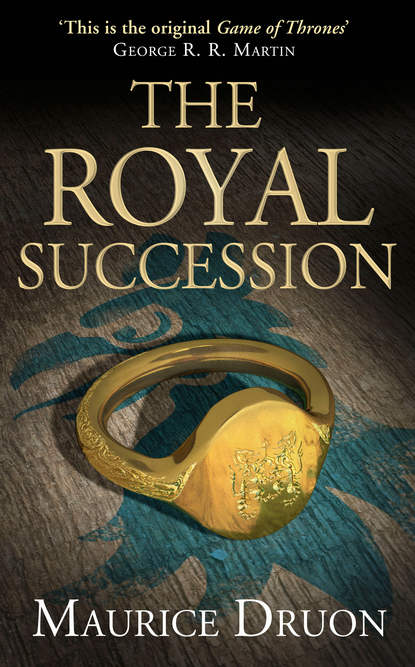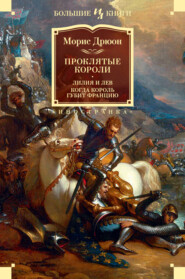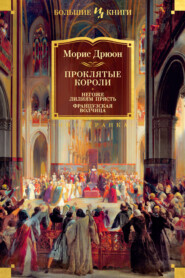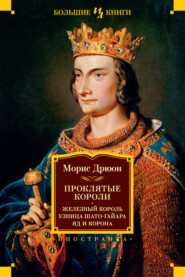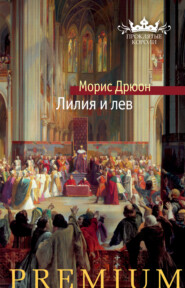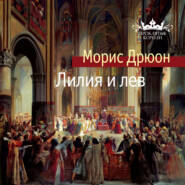По всем вопросам обращайтесь на: info@litportal.ru
(©) 2003-2025.
✖
The Royal Succession
Автор
Год написания книги
2019
Настройки чтения
Размер шрифта
Высота строк
Поля
But his hopes were disappointed. Marie was a strong girl and made for motherhood. She rode the twenty-five miles from Neauphle to Paris without showing any signs of weakness. She was bruised and suffocating with heat, but did not complain. From under her hood she saw nothing of Paris but the surface of the streets, the bottoms of the houses and headless people. What legs! What shoes! She would have liked to raise her hood but dared not. What surprised her most was the noise, the immense rumbling of the city, the voices of the street-hawkers selling every kind of ware, the noises made by the various trades; in certain alleys the crowd was so dense that the horses could hardly force their way through. Passers-by jostled Marie’s legs; but at length the horses came to a halt. She dismounted, feeling tired and dusty; she was allowed to raise her hood.
‘Where are we?’ she asked, gazing in surprise at the courtyard of a fine house.
‘At your Lombard’s uncle’s house,’ replied Jean de Cressay.
A few moments later Messer Tolomei, one eye shut and the other open, gazed at the three children of the late Sire de Cressay as they sat in a row before him, Jean bearded, Pierre clean-shaven, and their sister beside them, a little withdrawn, her head bowed.
‘You understand, Messer Tolomei,’ said Jean, ‘that you made us a promise.’
‘Of course, of course,’ replied Tolomei, ‘and I’m going to keep it, my friends, have no fear.’
‘You understand that it must be kept quickly. You understand that after all the gossip there has been about her shame, our sister can no longer live with us. You understand that we no longer dare appear in our neighbours’ houses, that even our serfs mock us as we go by, and that it will be worse still when our sister’s sin becomes more apparent.’
Tolomei had a reply on the tip of his tongue: ‘But, my lads, it’s you who have caused all the scandal! No one compelled you to pursue Guccio like madmen, rousing the whole town of Neauphle and announcing the mishap more publicly than if it had been cried by the town-crier.’
‘And our mother is not recovering from our misfortune; she has cursed her daughter, and seeing Marie near renews her anger until we fear she may die of it. You understand …’
‘This idiot, like everyone who asks you to understand, can’t have much sense in his head. When he has had his say he’ll stop. But what I do very well understand,’ the banker said to himself, ‘is why Guccio is mad about this pretty girl. Till now I thought he was wrong, but I’ve changed my opinion since she came into the room; and if my age would still let me, I’ve no doubt that I should behave more foolishly than he has done. Beautiful eyes, beautiful hair, beautiful skin – a true spring flower. And how bravely she bears her misfortunes; really, they both make such a fuss you might think it was they who had been ravished. But, poor child, her suffering is greater than theirs. She must surely have a nice nature. What bad luck to have been born under the same roof as these two oafs, and how I should like Guccio to be able to marry her openly so she could live here and rejoice my old age with the sight of her.’
He did not stop looking at her. Marie raised her eyes to him, lowered them at once, then raised them again, troubled at what he might be thinking of her and by his insistent gaze.
‘You understand, Messer, that your nephew …’
‘Oh, I disown him, I’ve disinherited him! If he had not fled to Italy, I think I’d have killed him with my own hands. If I could only find out where he’s hiding …’ said Tolomei, taking his forehead in his hands with an air of dejection.
But through the little chink between his hands, allowing no one but the girl to see, he twice raised the heavy eyelid which normally he kept closed. Marie realized that she had an ally and could not restrain a sigh. Guccio was alive, Guccio was in a safe place, and Tolomei knew where. What did the cloister matter to her now!
She was no longer listening to what her brother Jean was saying. She knew it all by heart. Even Pierre de Cressay sat silent, looking vaguely weary. Without daring to say so, he blamed himself for having also given way to anger. He was leaving it to his brother to convince himself that he had acted properly; he left it to Jean to speak of the honour of their blood and the laws of chivalry, so as to justify their immense folly.
When the Cressay brothers came from their poor little ramshackle manor, from their courtyard which stank of the dunghill all the year round, and saw Tolomei’s princely residence, the brocades, the silver bowls, when they felt beneath their fingers the delicate carving on the chairs and became aware of that atmosphere of wealth and abundance which permeated the whole house, they were forced to recognize that their sister would not have been so badly off if they left her to her own inclination. The younger one sincerely regretted it. ‘At least one of us would have been well provided for, and we should all have benefited,’ he thought. But the bearded one, with his stubborn nature, merely felt the more spite as well as a base jealousy. ‘Why should her sins give her a right to so much wealth through sinning, while we live so poorly?’
Nor was Marie insensible to the luxury around her; it dazzled her, and merely increased her regrets.
‘If only Guccio had been even a little noble,’ she thought, ‘or if we had not been noble at all! What does chivalry matter? Can it be a good thing, when it makes one suffer so much? And is not wealth a sort of nobility in itself? What is the difference between making serfs labour and making money work?’
‘You need have no concern, my friends,’ said Tolomei at last; ‘leave everything to me. It’s the duty of uncles to repair the faults committed by their wicked nephews. Thanks to my influential friends, I have succeeded in getting your sister accepted by the Royal Convent of the Daughters of Saint-Marcel. Does that satisfy you?’
The two Cressay brothers looked at each other and nodded their heads in approval. The Convent of the Clarisses in the Faubourg Saint-Marcel enjoyed the highest reputation among female religious establishments. It was almost entirely confined to the daughters of the nobility. And it was there that the royal family’s bastards were occasionally concealed behind the veil. Jean de Cressay’s ill-temper vanished at once, appeased by the vanity of caste. And, to show that the Cressays were not unworthy of what was being done for their sister in her sin, he added hastily: ‘Excellent, excellent; besides, I think the Abbess is some sort of a relation of ours; our mother has often quoted her to us as an example.’
‘Then everything is for the best,’ continued Tolomei. ‘I shall take your sister to Messire Hugues de Bouville, the ex-Grand Chamberlain …’
The two brothers bowed slightly in their chairs to show their respect.
‘… from whom I obtained this favour,’ Tolomei went on; ‘and tonight, I promise you, she shall be inside the convent. You can therefore go home reassured; I will keep you informed.’
The two brothers asked no better. They were getting rid of their sister, and thought that they had done enough by handing her over to the care of others. The silence of the cloister would close over the scandal which, at Cressay, need from now on be mentioned only in whispers, or not even be mentioned at all.
‘May God keep you and inspire you with repentance,’ said Jean to his sister by way of goodbye.
He put much more warmth into his farewell to Tolomei and thanked him for the trouble he was taking. He very nearly reproached Marie for the grief she was causing this excellent man.
‘God keep you, Marie,’ said Pierre with emotion.
He wanted to kiss his sister, but dared not do so under the severe eye of his elder brother. And Marie found herself alone with the fat banker with the dark complexion, the fleshy mouth and the closed eye, who, strange as it might seem, was her uncle.
The two horses left the courtyard and the roaring of the broken-winded nag could be heard growing fainter; it was the last sound of Cressay moving out of Marie’s ken.
‘And now, let us eat, my child. And while we dine, we don’t weep,’ said Tolomei.
He helped the girl take off the cloak which was suffocating her; Marie looked surprised and grateful, for it was the first mark of attention, or even of simple courtesy, she had been shown for many weeks.
Вы ознакомились с фрагментом книги.
Приобретайте полный текст книги у нашего партнера:
Приобретайте полный текст книги у нашего партнера:





